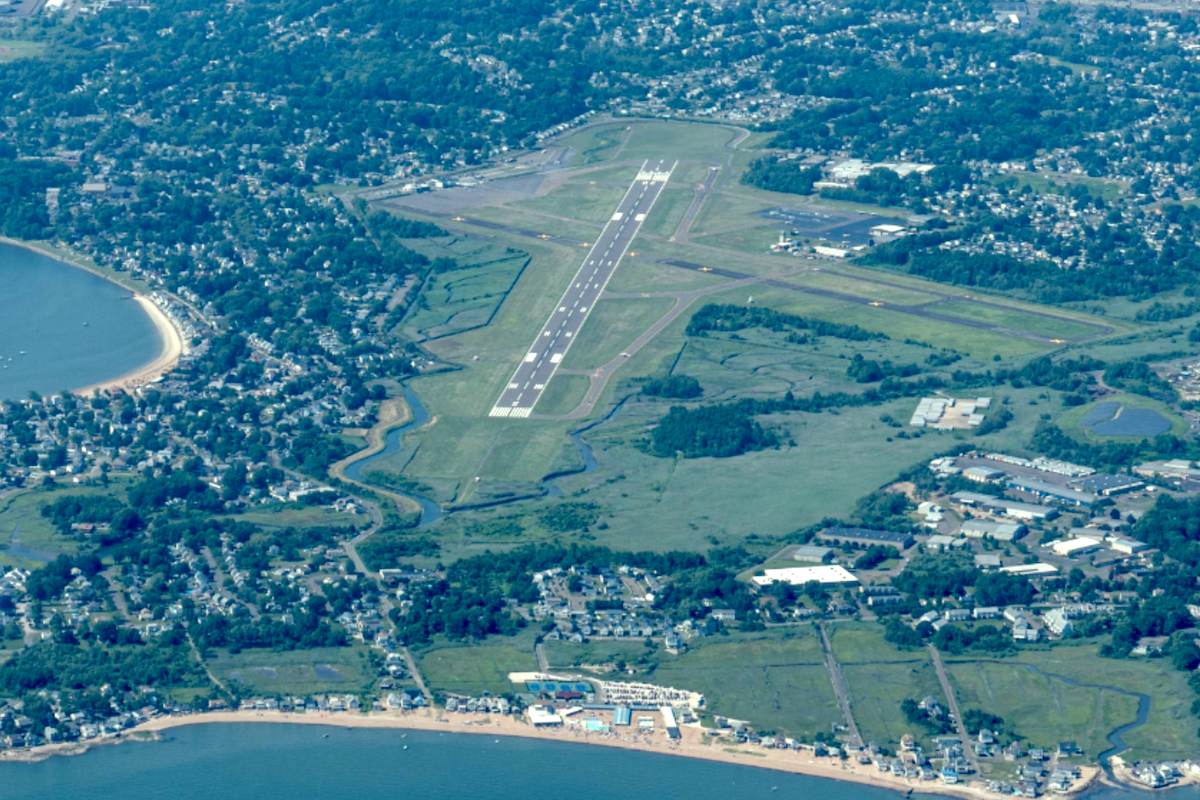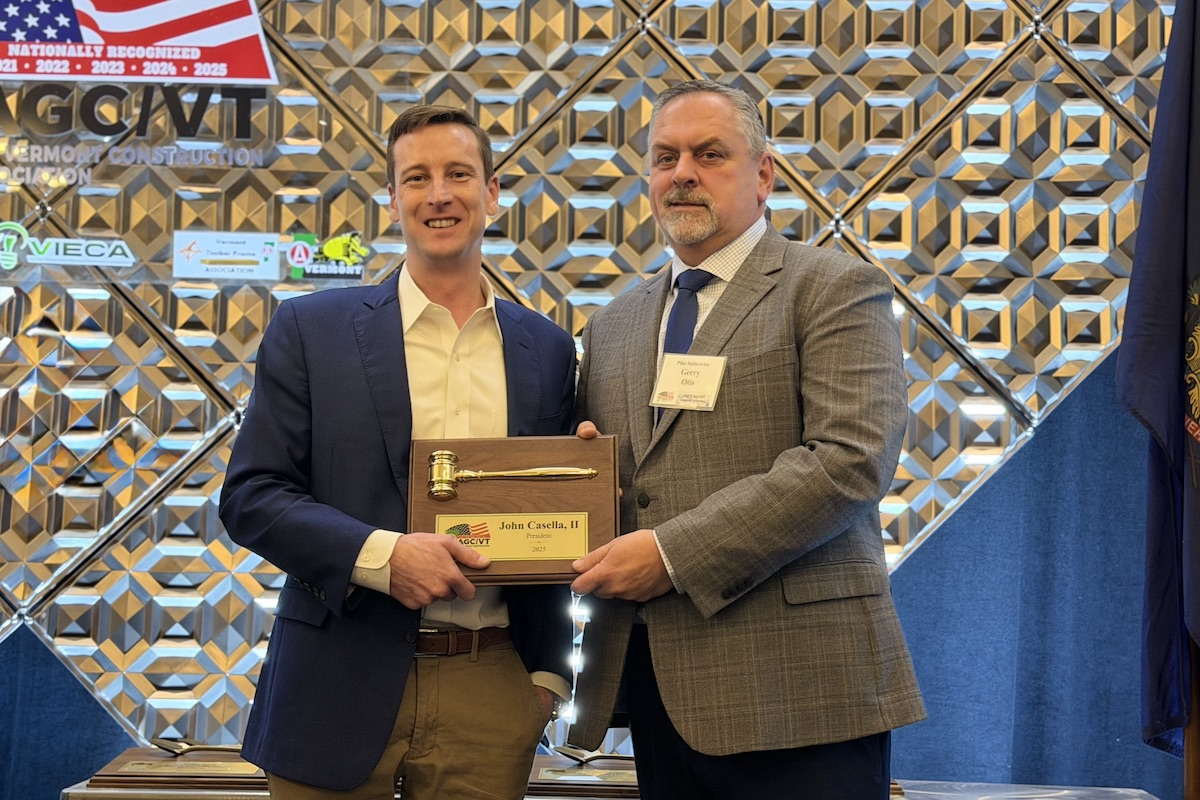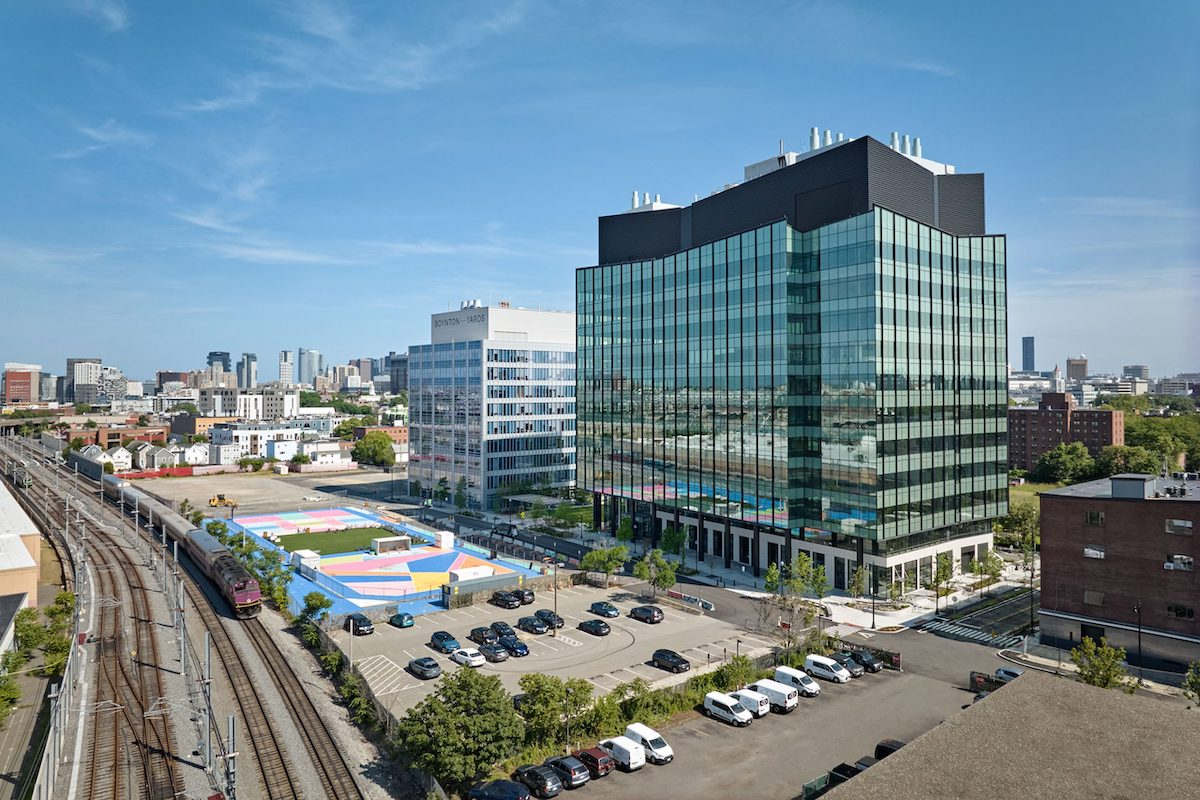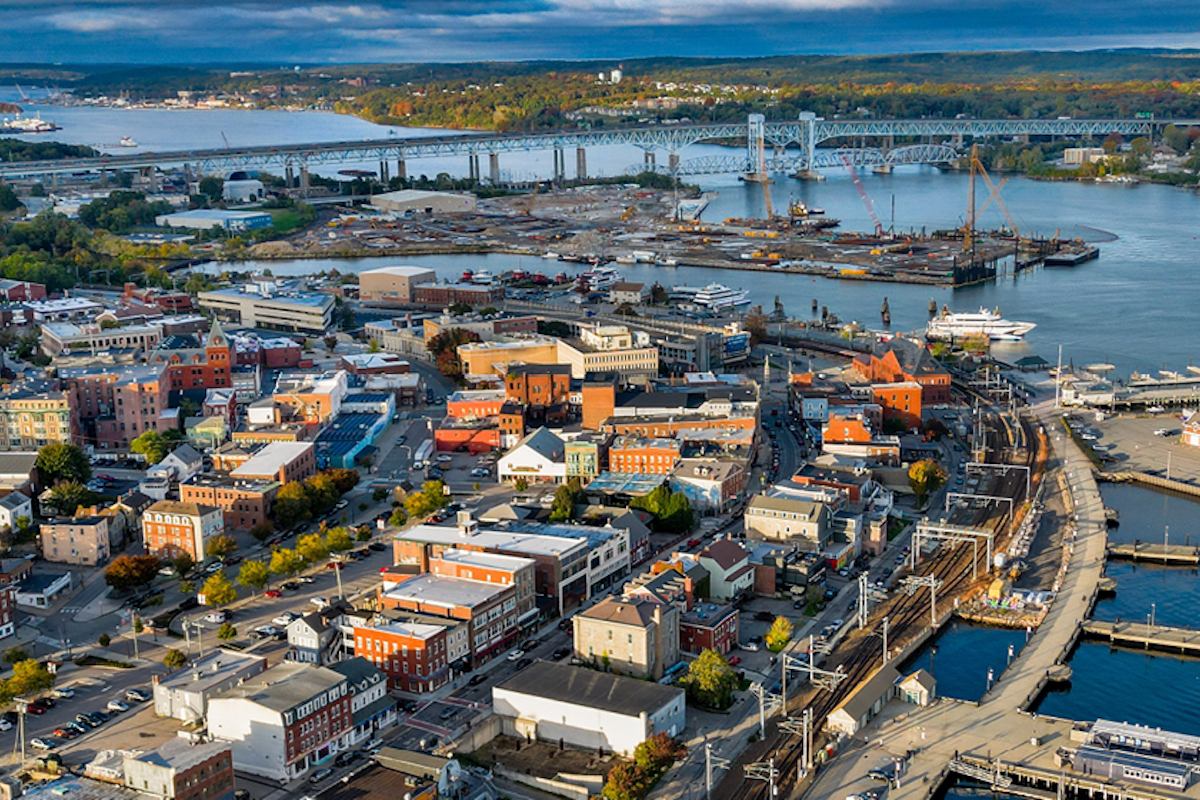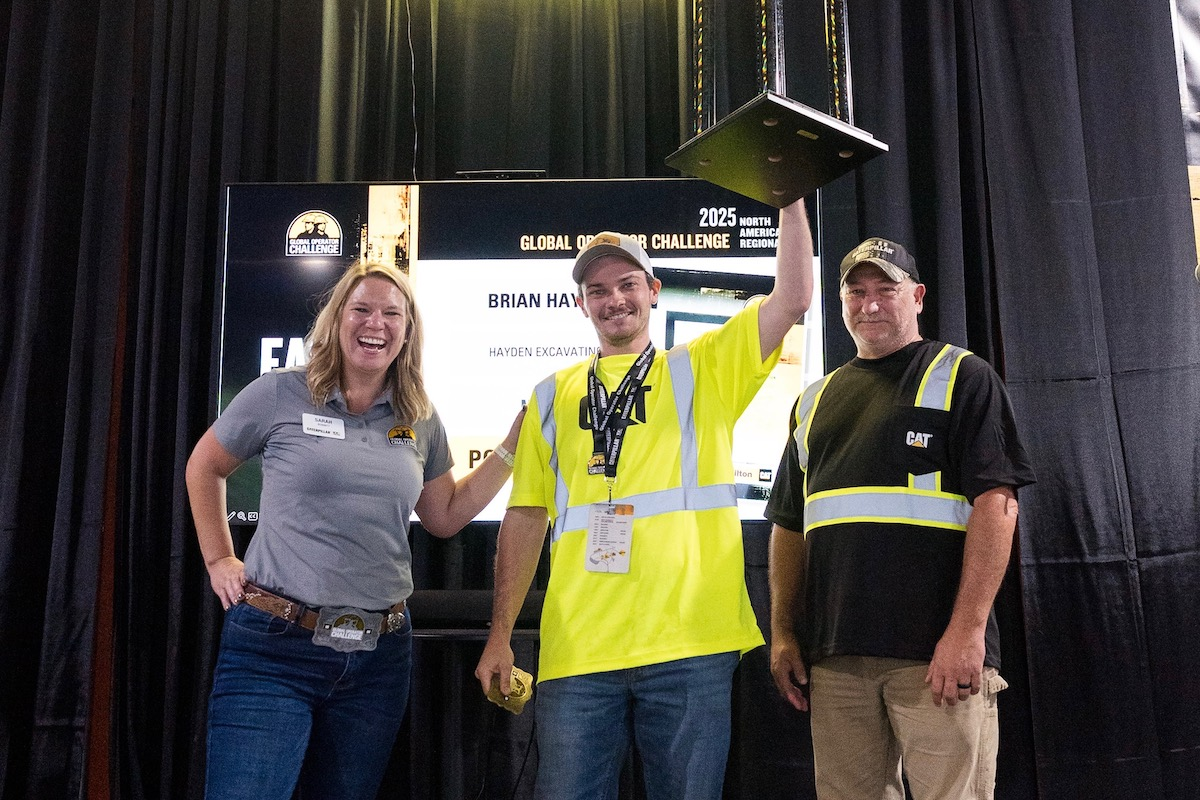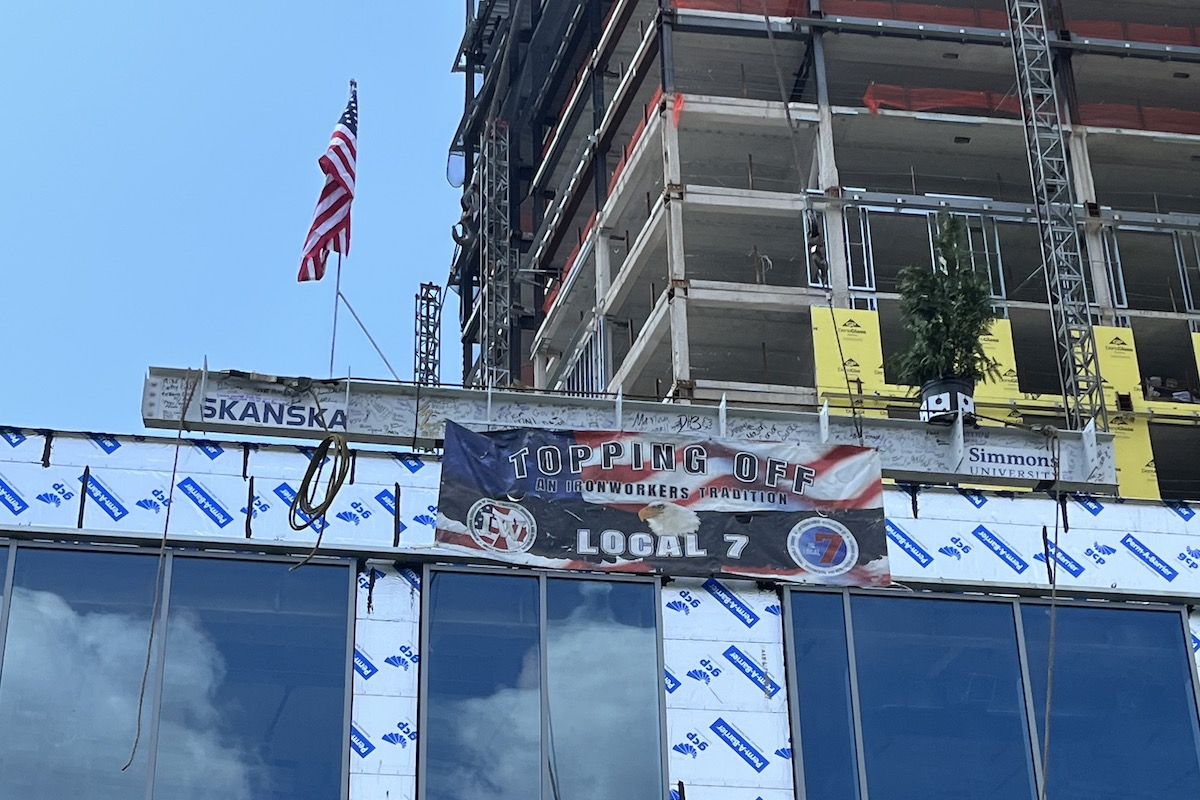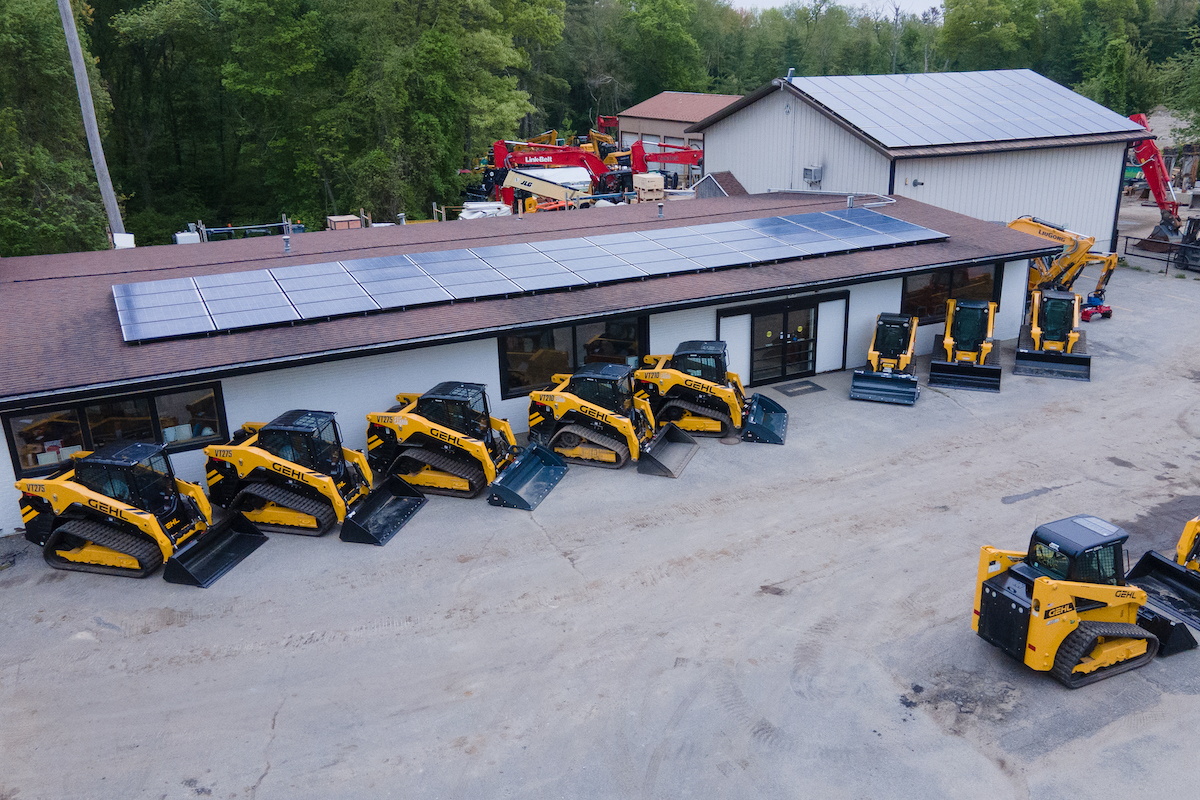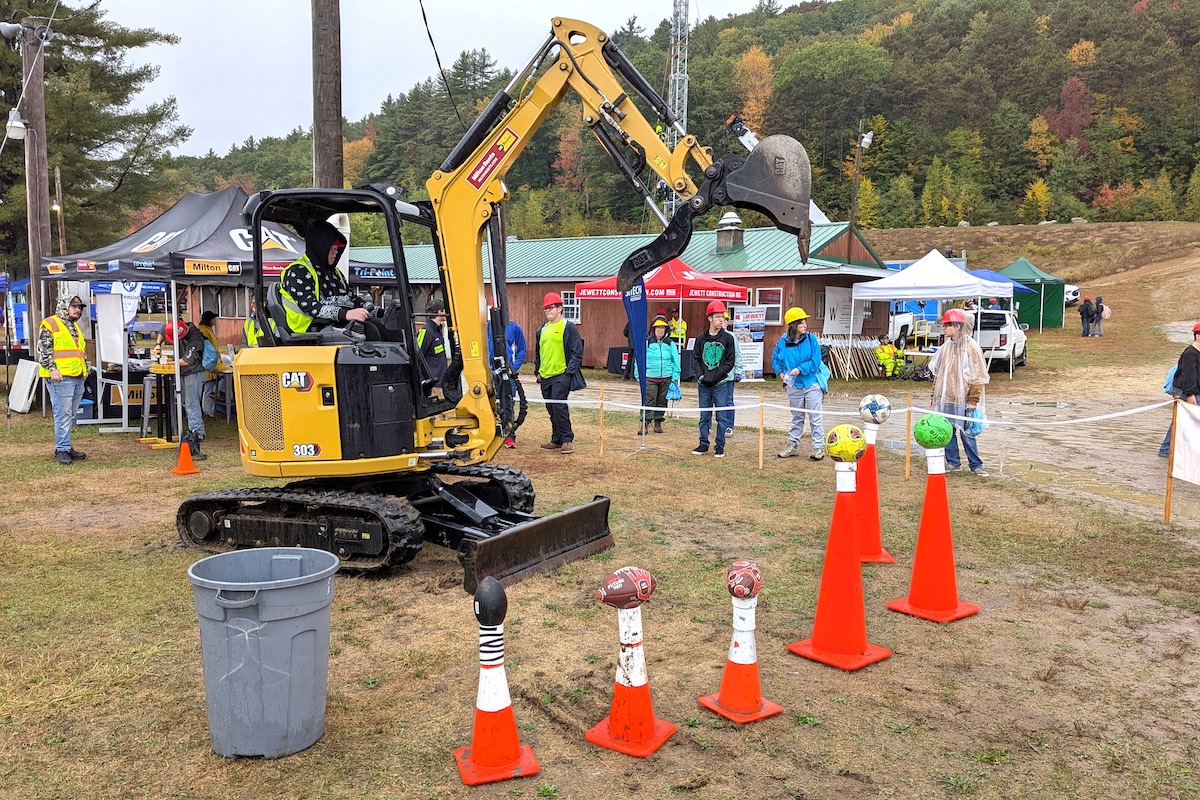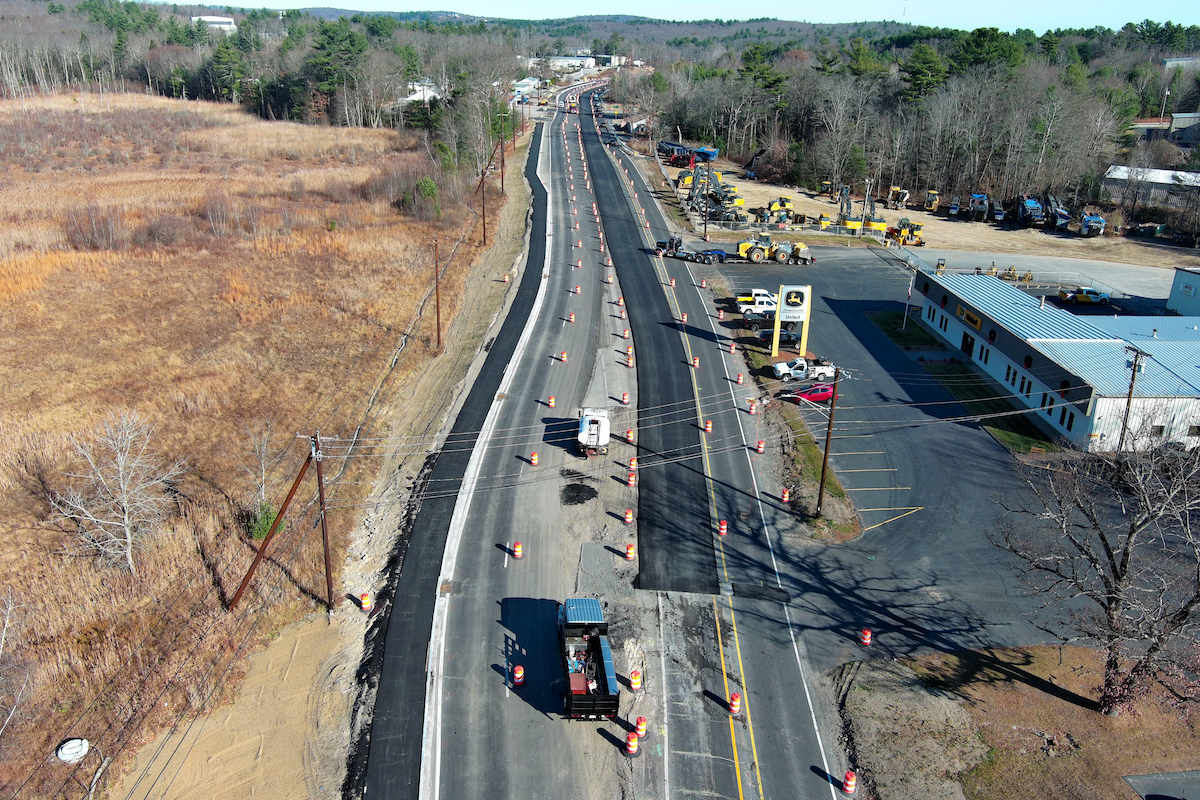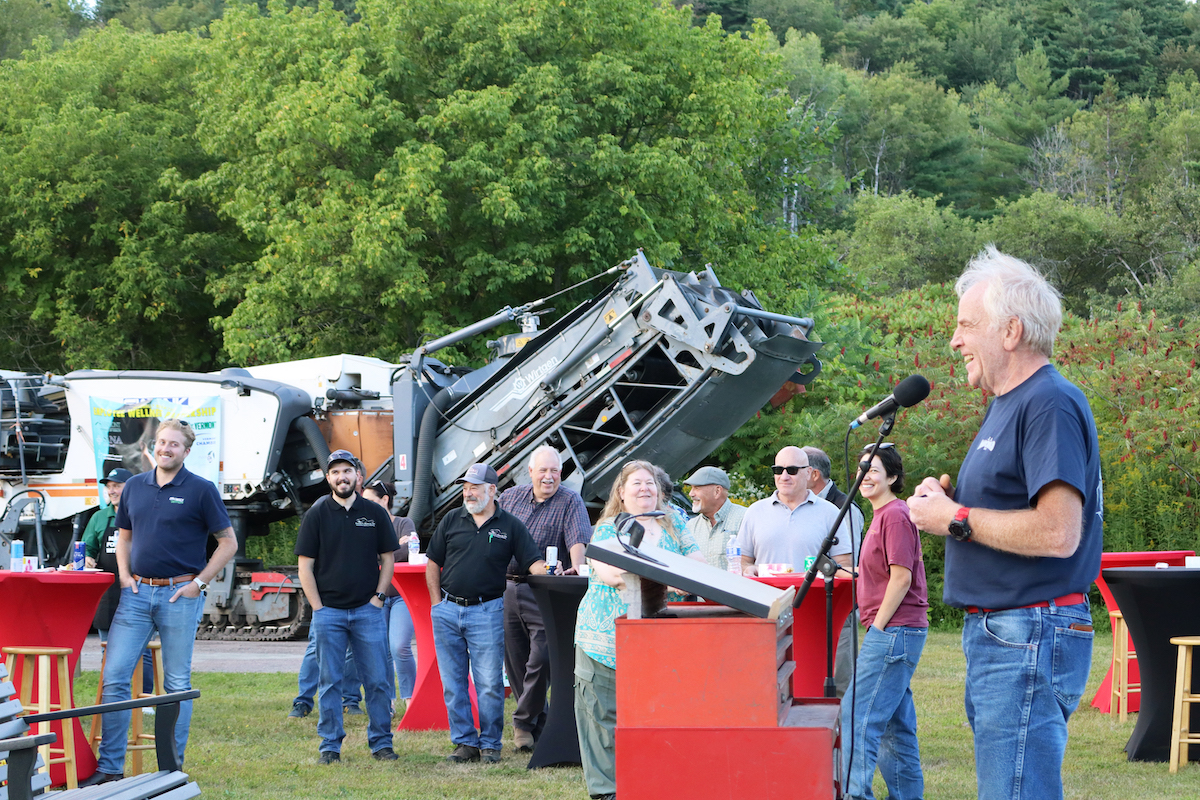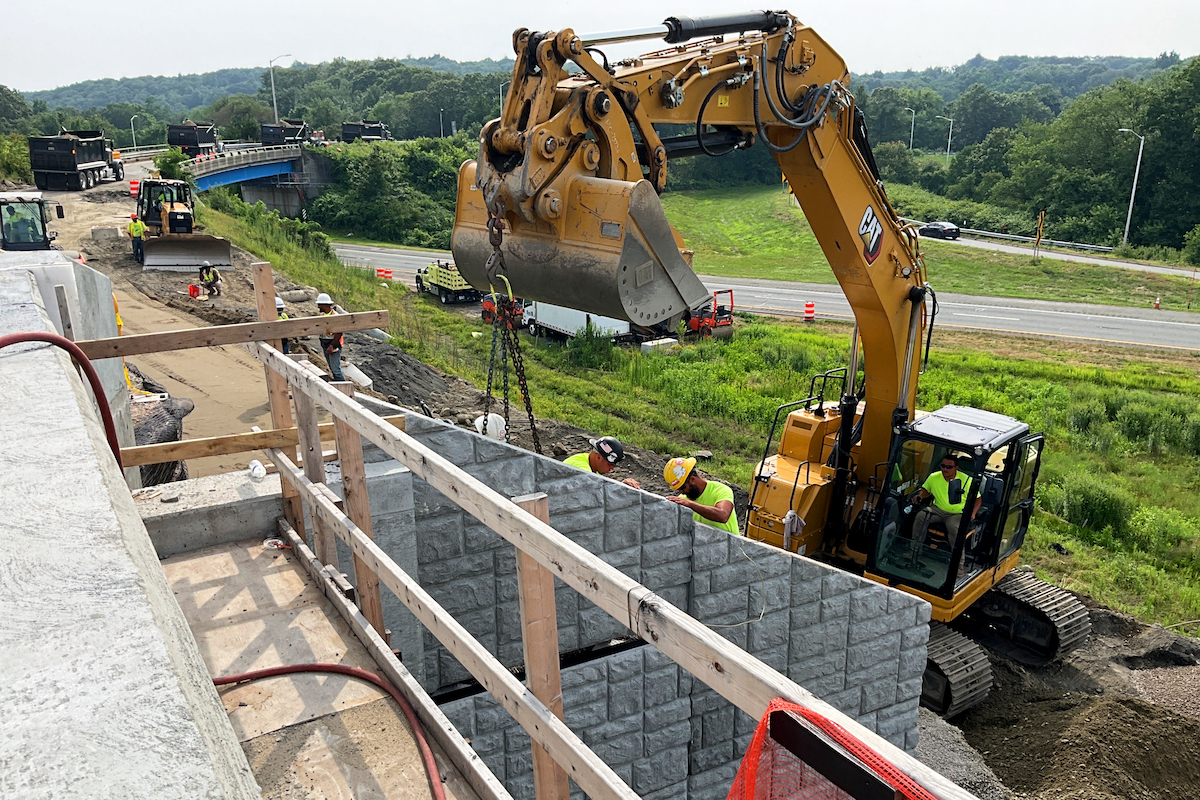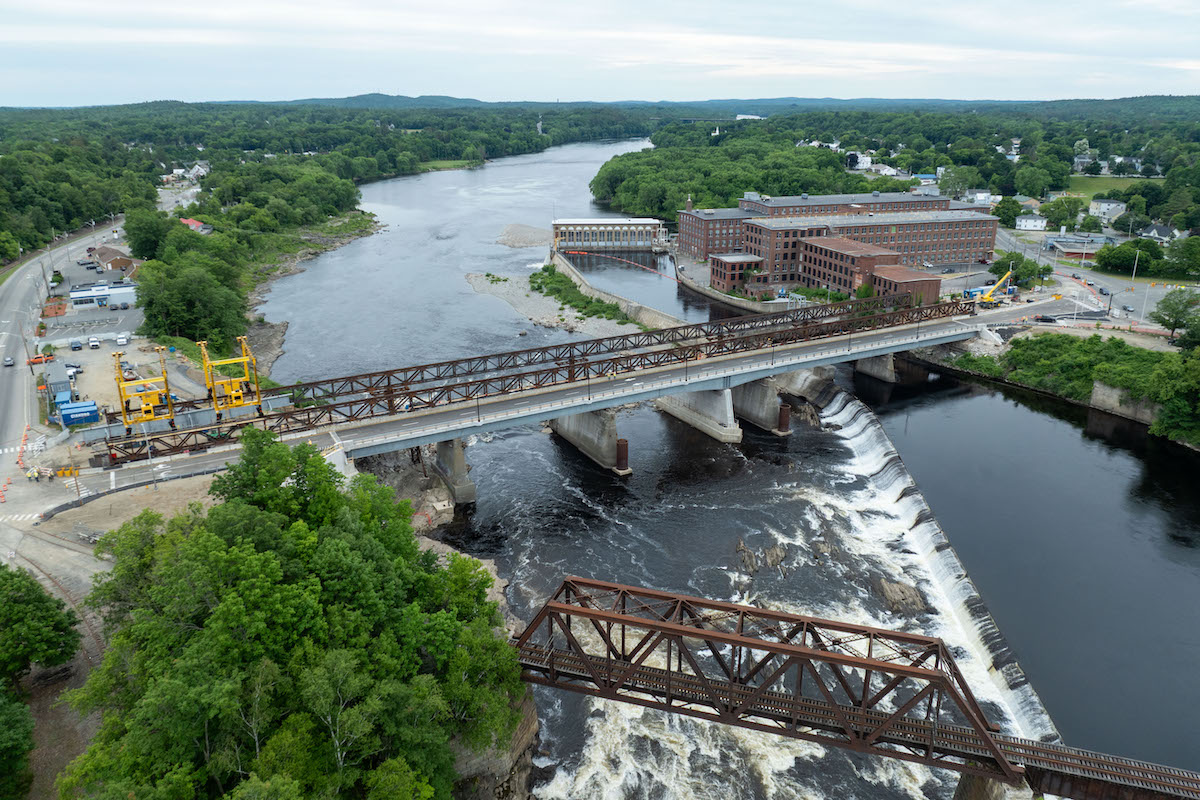The $6.4 billion (CDN) Gordie Howe International Bridge, connecting Detroit, Michigan, and Windsor, Canada, recently reached a milestone with the completion of the bridge deck.
“Making connections is what the Gordie Howe International Bridge is all about,” said Charl van Niekerk, Chief Executive Officer, Windsor-Detroit Bridge Authority (WDBA). “While we celebrate the physical deck connection, it gives us the opportunity to look to the very near future when we will see truck drivers make their way to deliver their freight to market, commuters heading to work and back home again, and tourists enjoying the views that bond our two countries from the multi-use path. We look forward to opening for business in fall 2025.”
The current Detroit-Windsor crossing, on the Ambassador Bridge, represents the United States and Canada’s busiest commercial land border crossing, carrying more than a quarter of all trade between the two countries. Officials on both sides of the border recognized a need for a new bridge many years ago and conducted a traffic study, followed by a planning and feasibility study completed in 2004.
The new bridge will address regional transportation needs for redundancy, as the Ambassador Bridge will remain in service, increase capacity at the border, improve border processing, and — for the first time — offer highway-to-highway connectivity, according to WDBA Chief Relations Officer Heather Grondin.
Named after a popular hockey player, the cable-stayed Gordie Howe International Bridge features two 722-foot towers, one in each country, and a 0.53-mile clear span across the Detroit River. The bridge sits 150 feet above the water.

| Your local Hyundai dealer |
|---|
| Equipment East |
Each tower features 108 cable stays connecting to the deck. The bridge will provide three vehicular lanes of traffic in each direction, with the ability to expand to four lanes in each direction in the future, and a multi-use path for pedestrians and cyclists.
In addition to the bridge, the project includes U.S. and Canadian ports of entry and an interchange connecting the U.S. Port of Entry with Interstate 75 in Michigan. The U.S. Port of Entry sits on 167 acres and will house 36 primary inspection lanes, as well as inbound and outbound inspection facilities.
Bridging North America — a joint venture among Dragados with an office in Toronto, Canada; Fluor with an office in Calgary, Canada; and AECOM with an office in Toronto — will design, build, finance, operate, and maintain the Canadian and U.S. ports of entry and the bridge, and will design, build, and finance the Michigan Interchange under a public-private partnership agreement. AECOM serves as the design partner. The State of Michigan will be responsible for the operations and maintenance of the Michigan Interchange.
Construction began in October 2018. In the past year, crews have completed construction of the two massive towers, the installation of the 216 stay cables and the steel floor beams, redundancy girders, steel soffit panels, and precast concrete panels that make up the bridge deck. Crews built the back span of the road deck first, supported by temporary falsework bents, before construction progressed on the main span over the Detroit River. Crews completed 27 pre-designed, 49-foot-long, and 123-foot-wide segments from each tower, leaving a gap of about 36 feet in the middle. No marine operation was needed, which kept the shipping route open and avoided major disruptions to the fish habitat.

| Your local Wirtgen America dealer |
|---|
| United Construction & Forestry |
| WI Clark |
The two sides of the bridge deck officially connected in June 2024, when the final two structural-steel edge girders were placed for the deck in the last segment, known as the mid-span closure. Concerns about hot weather causing the steel to expand were dealt with by installing the permanent structural steel early in the morning.
The team set up a crane on each side of the bridge deck and placed six temporary bracing pieces to hold the deck in alignment. Then crews bolted the first edge girder to the U.S. side and used lock-up devices and temporary jacks to ensure the correct alignment. Then they repeated the process on the Canadian side. Temporary beams were removed, and additional girders, beams, and panels were installed.
“Building the bridge deck segment by segment is a marathon of construction cycles and is very intensive,” said Jaime Castro-Maier, Bridging North America Lead Engineer for the Canadian bridge site. “At the final point, we were within a few millimeters of where we were expecting to be. If you look at the magnitude of this construction site and the size of the bridge deck, to talk about millimeters was very rewarding, and I’m proud of the project team in successfully reaching this milestone.”
The bridge features drainage scuppers on both sides of the deck, which enable stormwater to flow away from the deck and into underground drainage ponds that collect and treat the water before releasing it into the Detroit River. The scuppers are installed, and work progresses on the installation of the pipe accessories.

| Your local Esco Corporation dealer |
|---|
| Genalco |
At the ports of entry, crews completed remediation activities, including hazardous material abatement, demolition, excavation and disposal of non-hazardous and hazardous contaminated soils, incineration, construction dewatering and industrial pre-treatment, and risk-based modeling and monitoring. The project has received several awards for its environmental efforts.
Additionally, crews completed the fourth road bridge for the Michigan I-75 interchange.
The team has logged more than 13 million hours of work on the project’s four components. More than 12,000 workers received orientation to the work, with 42 percent of those workers local to Windsor-Essex or Detroit, exceeding the project goal of 20 percent local participation.
On the bridge, workers are currently completing the post-tensioning of the cable stays inside each tower. Crews are also installing electrical, fire suppression, drainage systems, barriers, signage, lighting, deck paving, and pavement markings.

| Your local Volvo Construction Equipment dealer |
|---|
| Tyler Equipment |
Work continues on both ports of entry. The Canadian port includes 11 structures and the U.S. port 13 structures, with interior work progressing. Work on the inspection lanes is also taking place.
Crews are installing the final steel and concrete girders for the ramps connecting I-75 to the U.S. Port of Entry and working on the local road improvements and pedestrian bridges. The ramps range in length from 487 feet to 1,300 feet and are 15 to 24 feet high. The ramps will consume about 40,000 cubic yards of concrete and 11 million pounds of rebar.
Bridging North America and its subcontractors have used a variety of equipment, including a Bauer BG40 Drilling Rig, a Manitowoc 16000 Lattice-Boom Crawler Crane, a Manitowoc 2250 Lattice-Boom Service Crane, a Link-Belt LS-248 200-ton Crawler Crane, a Comansa 21LC1050 Tower Crane, a Manitowoc MLC300 VPC-Max 330-ton Crane, an ICE 44-50 Vibratory Hammer, a Caterpillar IT14G Loader, multiple-diameter rock augers, a soil auger, multiple-diameter core barrels for rock-socket drilling, air lifting equipment, Genie elevating working platforms, 36m mobile concrete pumps with tremie lines for concrete placement, concrete mixer trucks, and drilling and pressure grouting equipment.
The team has monitored noise and vibration and taken steps to mitigate concerns of residents and businesses within 150 feet of the construction zones for the U.S. Port of Entry and I-75 interchange. The team also conducts foundation surveys for structures near the construction activity.

| Your local Case Construction Equipment Inc dealer |
|---|
| Beauregard Equipment |
| Monroe Tractor |
The work required some road closures and detours. Motorists receive notice. Construction traffic stays on designated haul routes to minimize disruptions to the community and promote safety.
Safety remains a top priority for the project team. Specially trained staff in safety boats monitor work in a 150-foot exclusion zone along the Canadian bridge site. Other river traffic cannot enter this zone. The project has won three annual safety awards from the Infrastructure Health and Safety Association.
The project team expects traffic to start crossing the border in fall of next year.
“We could not have done [all of] this without the thousands of dedicated skilled trades people and engineers whose commitment to safety and quality is paramount,” said David Henderson, Chief Executive Officer, Bridging North America.

| Your local Trimble Construction Division dealer |
|---|
| SITECH Northeast |
Photos courtesy of the Gordie Howe International Bridge project






















